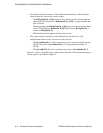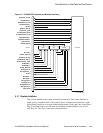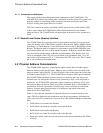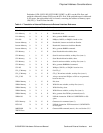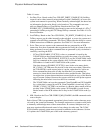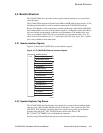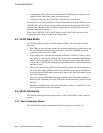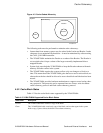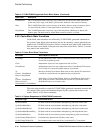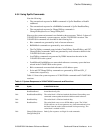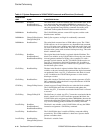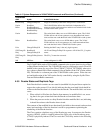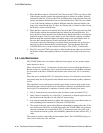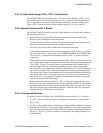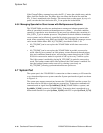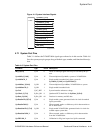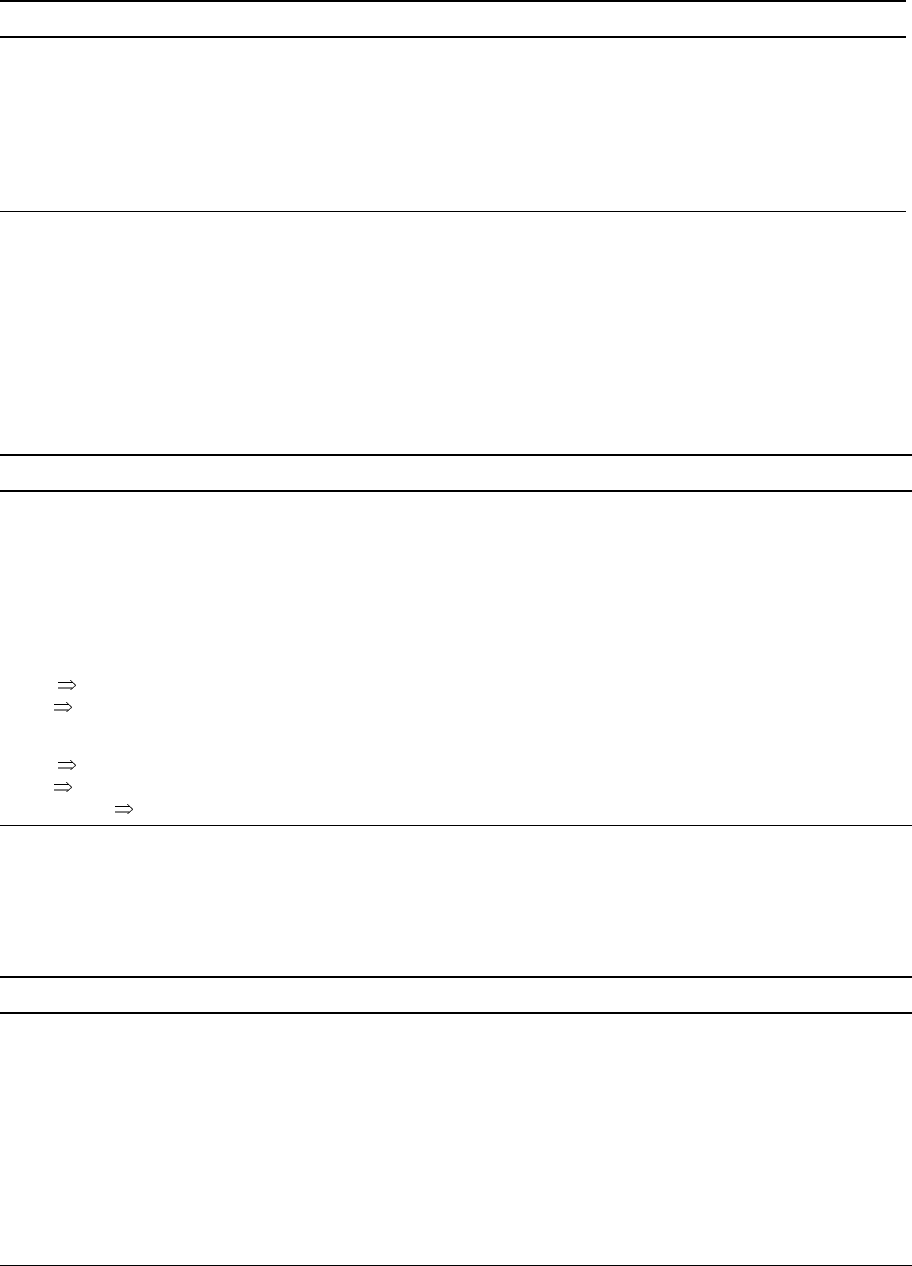
4–10 Cache and External Interfaces
21264/EV68A Hardware Reference Manual
Cache Coherency
4.5.3 Cache Block State Transitions
Cache block state transitions are reflected by 21264/EV68A-generated commands to
the system. Cache block state transitions can also be caused by system-generated com-
mands to the 21264/EV68A (probes). Probes control the next state for the cache block.
The next state can be based on the previous state of the cache block. Table 4–3 lists the
next state for the cache block.
The cache state transitions caused by 21264/EV68A-generated commands are under the
full control of the system environment using the SysDc (system data control) com-
mands. Table 4–4 lists these commands.
Clean/Shared This 21264/EV68A holds a read-only copy of the block, and at least one other agent in the
system may hold a copy of the block. Upon eviction, the block is not written to memory.
Dirty This 21264/EV68A holds a read-write copy of the block, and must write it to memory after it
is evicted from the cache. No other agent in the system holds a copy of the block.
Dirty/Shared This 21264/EV68A holds a read-only copy of the dirty block, which may be shared with
another agent. The block must be written back to memory when it is evicted.
Table 4–3 Cache Block State Transitions
Next State Action Based on Probe Hit
No change Do not update cache state. Useful for DMA transactions that sample data but
do not want to update tag state.
Clean Independent of previous state, update next state to Clean.
Clean/Shared Independent of previous state, update next state to Clean/Shared. This transac-
tion is useful for systems that update memory on probe hits.
T1:
Clean
Clean/Shared
Dirty
Dirty/Shared
Based on the dirty bit, make the block clean or dirty shared. This transaction
is useful for systems that do not update memory on probe hits.
T3:
Clean
Clean/Shared
Dirty
Invalid
Dirty/Shared
Clean/Shared
If the block is Clean or Dirty/Shared, change to Clean/Shared. If the block is
Dirty, change to Invalid. This transaction is useful for systems that use the
Dirty/Shared state as an exclusive state.
Table 4–4 System Responses to 21264/EV68A Commands
Response Type 21264/EV68A Action
SysDc ReadData Fill block with the associated data and update tag with clean cache status.
SysDc ReadDataDirty Fill block with the associated data and update tag with dirty cache status.
SysDc ReadDataShared Fill block with the associated data and update tag with shared cache status.
SysDc ReadDataShared/Dirty Fill block with the associated data and update tag with dirty/shared status.
SysDc ReadDataError Fill block with all-ones reference pattern and update tag with invalid status.
SysDc ChangeToDirtySuccess Unconditionally update block with dirty cache status.
SysDc ChangeToDirtyFail Do not update cache status and fail any associated STx_C instructions.
Table 4–2 21264/EV68A-Supported Cache Block States (Continued)
State Name Description



